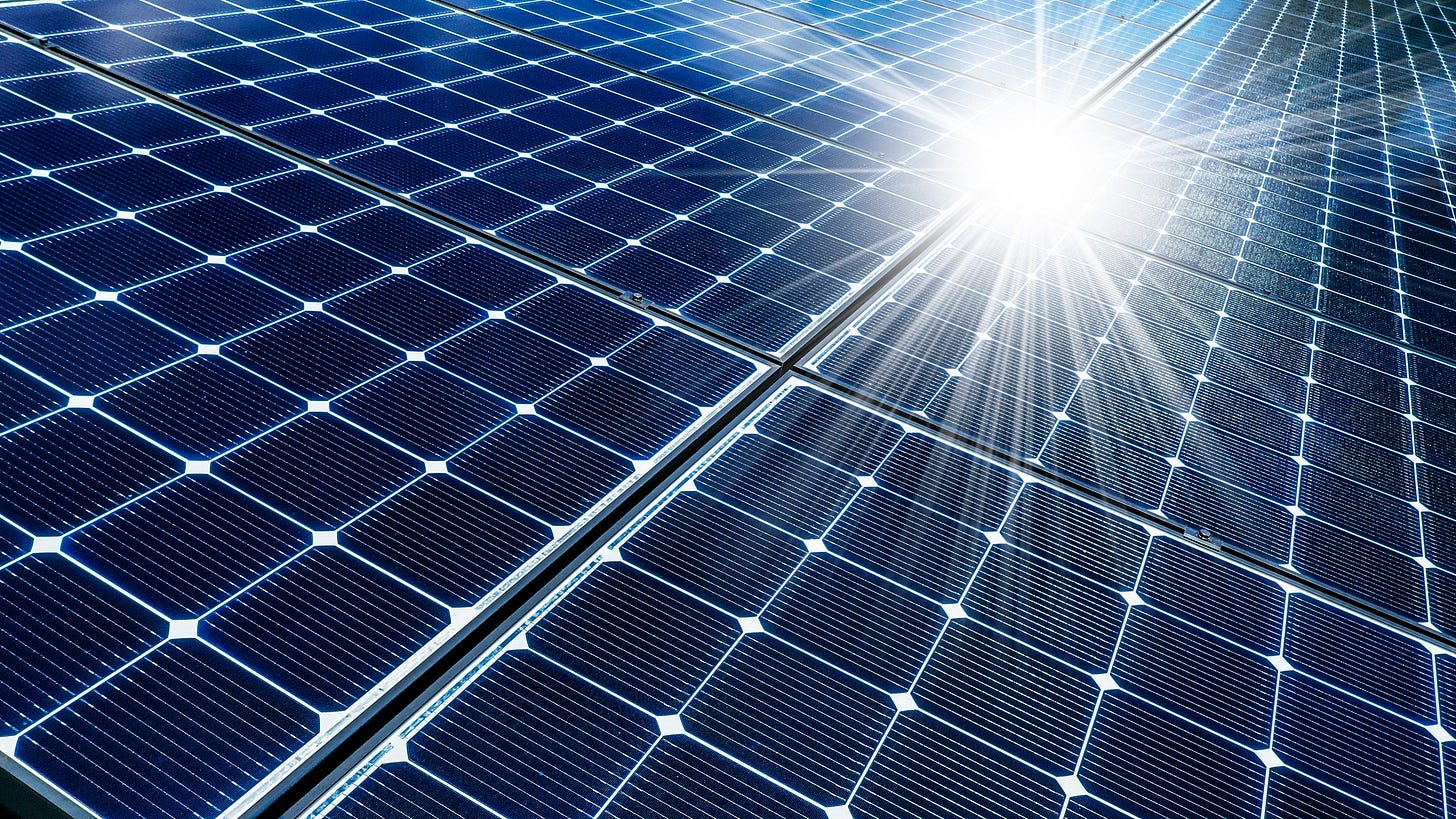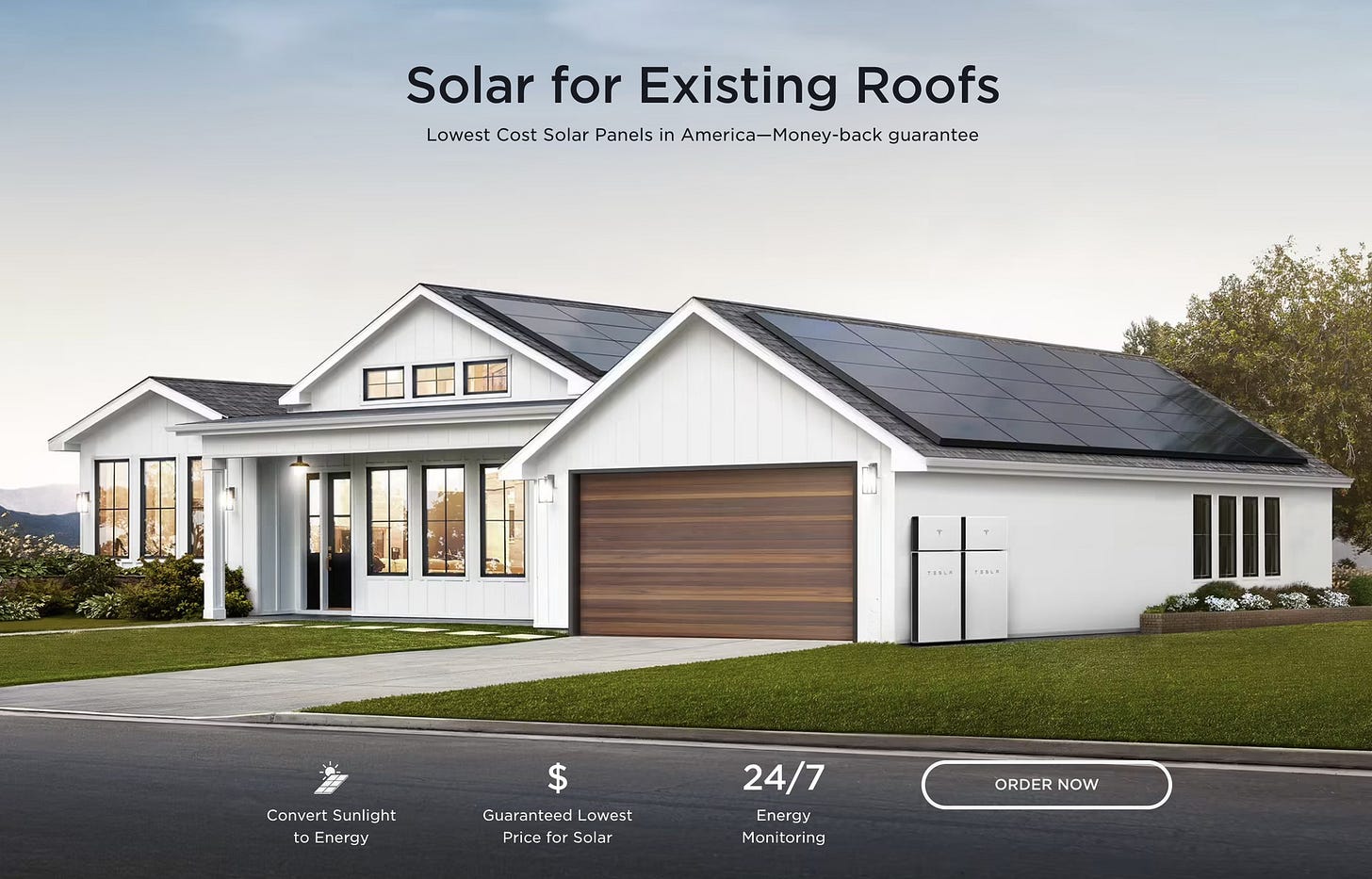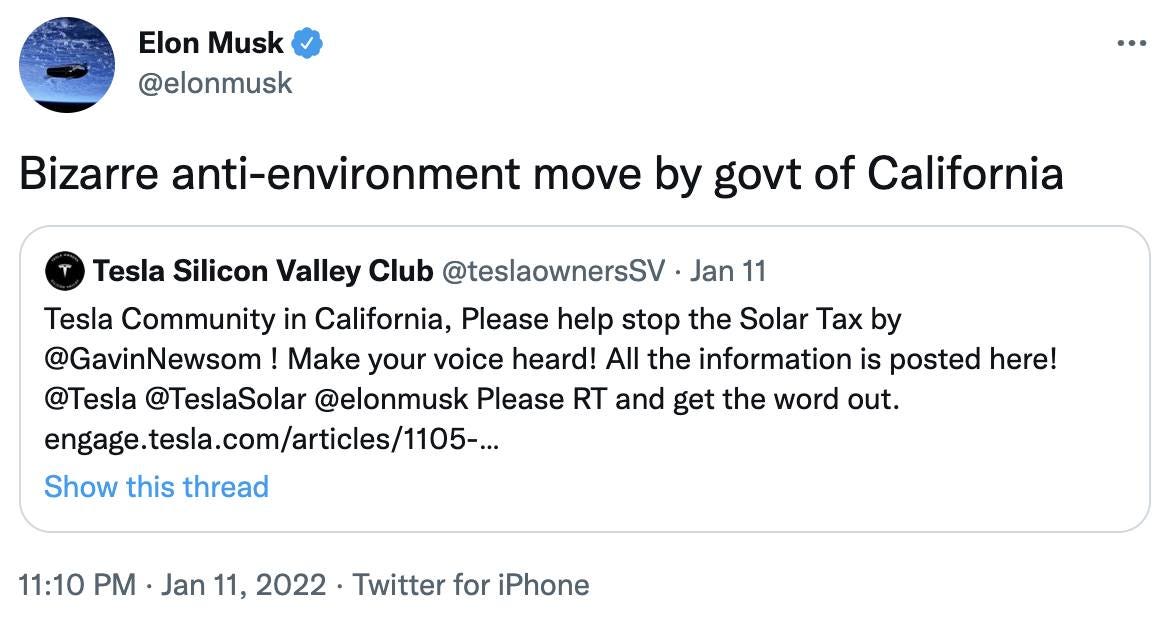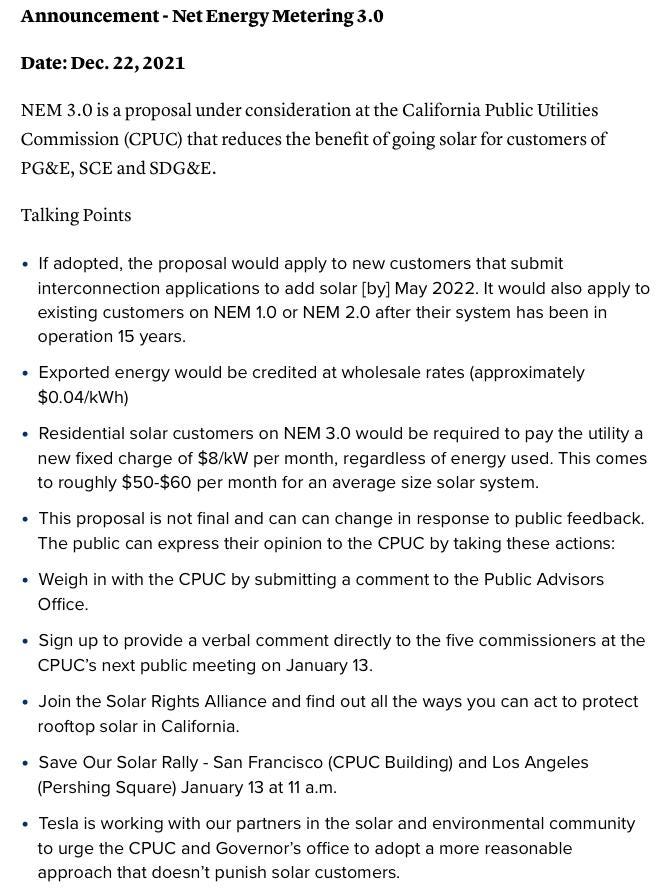
Thanks for finding Full Throttle. The newsletter will be delivered twice a week for free once you subscribe here. Follow me on Twitter, Instagram, and Linkedin.
Solar energy is part of our sustainable future, right? It will help us charge the batteries for the wave of electric vehicles (EVs) coming to a showroom near you. That’s what Elon Musk says. Solar certainly is part of his business empire. But I am confused by his latest political stand in California.
A video that is part of Tesla's marketing of its solar panel business. (Credit: Tesla)
Let’s start with energy. We can talk about oil, gas, nuclear, hydro, or wind. Many believe the holy grail is fusion energy. Fusion would require advances in technology and building reactors. Musk says we already have a fusion reactor. It’s in the sky, and all we have to do is harness the sun’s powers. That may be part of the reason Musk’s SolarCity business, now part of Tesla, was created. Tesla-SolarCity will make a deal with you to put panels on your roof. You share the power for several years before you own the panels.
Tesla CEO Elon Musk on the powerful "fusion reactor" in the sky. (Credit: NASEM)
That’s the smaller solar picture. The big picture is that Musk believes that 200 square kilometers of photovoltaic cells could create enough energy for all of the US. He says one can think about using a corner of Utah or Texas covered in panels to power everything.
Musk on the amount of solar panels needed to power the US. (Credit: NASEM)
So it's not surprising that Musk is criticizing a plan in California to lower subsidies for residents who want to add solar panels to their homes.
The California Public Utilities Commission (PUC) is talking about cutting subsidies to homeowners who install solar panels. The PUC also wants to add a charge to those homeowners who supply their excess electricity to the grid. This all seems a bit surprising for California which has been the leader in incentivizing solar and EVs. But this reduction in subsidies and new charge to homeowners are actually incentives.

(Credit: Tesla)
As any student of economics knows, incentives can be positive- "I will pay you", or negative- "It will cost you." The PUC wants to incentivize the use of batteries to store power in homes. That could help deal with the state’s power shortage in the evening hours. That explains the charge to hook up to the grid.
The debate is underway in California and there are plenty of politics involved, with some blaming the utilities for pushing these changes. The Governor is now suggesting changes to the plan are ahead.

Let’s get back to Elon Musk. He tweeted his opposition to this California proposal, calling it “anti-environmental.” Tesla benefits from all those subsidies through homeowners buying its panels and services. Tesla, according to CNBC, sent an email to employees with a list of talking points about why the PUC plan is flawed.

Tesla talking points on California PUC plan to change solar subsidies. (Credit: CNBC)
This comes just weeks after Musk told a group of scientists, when he was asked about subsidies, “delete ‘em all.” Musk’s other businesses have benefited from government subsidies. The vehicle division of Tesla actually ran out of EV subsidies. Those tax credits are phased-out after a company sells 200,000 vehicles. Tesla was the first to hit that milestone.
Musk’s space company nearly went bankrupt before its fourth test flight was successful. That flight allowed Musk to gain a NASA contract, followed by another NASA contract, then another, which funded SpaceX’s rocket and capsule development.
Musk talks about solar power in general. (Credit: NASEM)
Musk does talk a lot about a sustainable energy future. Maybe Musk thinks it’s important to subsidize energy sources, but not space or automobile companies, even though he said, about those tax credits, “delete ‘em all.”
I am confused, which is why I asked Tesla for guidance. Subsidies are good, or “delete ‘em all?” The company did not respond.
(Cover photo credit: Getty Images)




